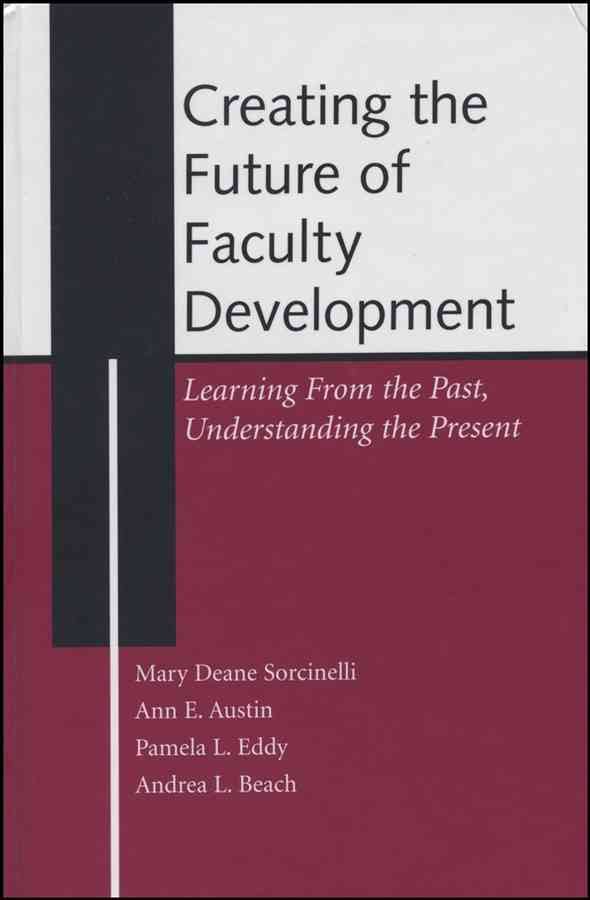Sorcinelli Austin et al 2006
Creating the future of faculty development
1. Références
- Référence complète APA : Sorcinelli, M. D., Austin, A. E., Eddy, P. L., & Beach, A. L. (2006). Creating the future of faculty development. Bolton, MA: Anker Publishing Company, Inc.
- Auteur(s) : Mary Deane Sorcinelli, Ann Austin, Pamela Eddy et Andrea Beach
2. Copies
- Copie électronique en ligne :
- Copie électronique locale :
- Copie physique CP :
- Copie physique en bibliothèque :
3. Mots-clés
4. Quart de couverture
In recent years, new expectations of higher education from parents, employers, trustees, and government leaders have contributed to broad institutional changes. Recognizing that the quality of a university or college is closely related to that of its faculty members, many institutions have increased their efforts to support and enrich faculty work. Creating the Future of Faculty Development addresses this growing need for faculty development by exploring how faculty development has evolved and envisioning its future.
Based on a study of nearly 500 faculty developers from all institution types, the book examines core issues such as the structural variations among faculty development programs; the goals, purposes, and models that guide and influence faculty program developments; and the top challenges facing faculty members, institutions, and their programs. Several key questions are addressed, including
- What are the structural variations among faculty development programs?
- What goals, purposes, and models guide and influence program development?
- What are the top challenges facing faculty members, institutions, and faculty development programs?
- What are potential new directions and visions for the field of faculty development?
Creating the Future of Faculty Development summarizes the challenges and pressures now facing developers and higher education as a whole. In this book, readers will find reason to rethink how they approach, organize, and support faculty development as they engage in institutional planning for the future.
5. Table des matières (facultatif)
6. Résumé personnel (facultatif)
7. Voir aussi
